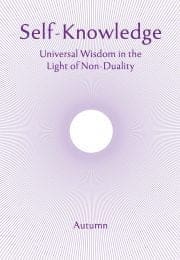Finding the Divine Element in Oneself
The ultimate good news for us is to be reminded that we are more than the physical and mental being which we appear to be. If we were to literally dissect the body and the mind of a person, and continue to break it down into its constituent parts, what would we find? The same basic elements and chemicals which go to make-up all other objects, animate and inanimate, in the world about us. In essence, our mind and body are made up of inert matter, and derive their animation from some extra power, which non-duality calls our real Self. It is the proximity of the real Self which breathes life, so to speak, into the body and mind. They are no more than the tools which the real Self employs to play in the world. We have forgotten that we are the real Self through its close association with the body and the mind and through the play of the senses in the outside world. If every day of our life is taken up with the external world, then it is not too surprising that we forget about our deeper nature.
Each day we play many parts without even thinking about it. At the back of it all, there is a continuous stream of consciousness which identifies us as the same being throughout all these quick-change acting parts. We almost forget its presence, and it is only when we have a break from the hurly burly of life that we get a fleeting glimpse of it, so that we suddenly feel detached from the emotional turmoil of our normal life— almost as though we have been a spectator. At these times we regain our balance, so to speak, enabling us to find answers and solutions to our problems, and to experience a sense of peace which might well be out of keeping with the events of the day. This is one of the many hints that we are more than just the body and the mind, and that our normal state is one of peace.
What is it about our own innermost Self that gives us this sense of peace? The non-dual teachings reveal that our innermost Self is not other than the Self of the whole universe, that is the Essence of the universe, or God. They tell us that when we come to know the nature of our own Self, then we come to know God, and we experience peace, contentment and bliss at all times, no matter what life throws at us.
Subscribe or enrol for free guest access to read all of this article and Self-Knowledge online.
Already subscribed or enrolled? Log in:


